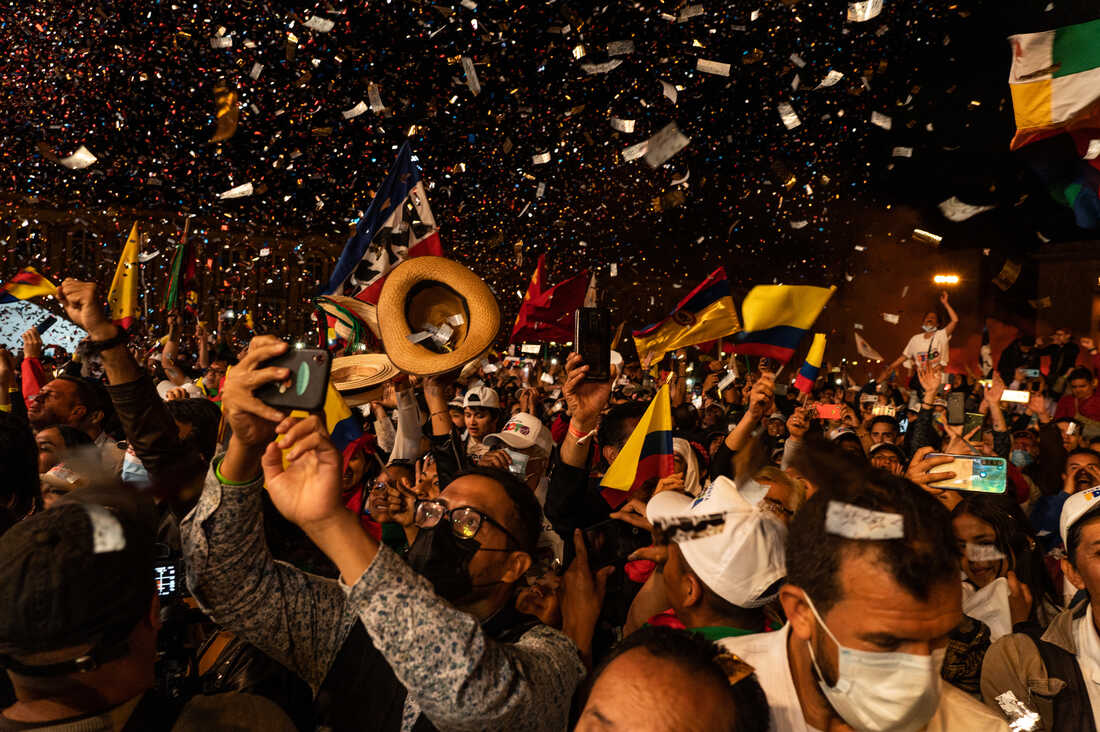The Constitutional Court’s ruling last night blocking the possibility of President Uribe’s reelection lifted a weight off the country’s shoulders. Even Uribe, who found out about the Court’s decision through his Blackberry at a a press conference about health reform in Barranquilla, reacted with a nervous smile.
Many Colombians, who heard the news over television and radio waves as the sun crept down last night, had the same reaction.
In Bogotá some went to celebrate in front of the Supreme Court’s building or the presidential palace, or in the city’s historic Plaza de Bolívar, but overall the city did not feel joyous nor sad. Anxiety, perhaps, sums up a lot of the emotions being felt here.
While it is clear to many that amending the state’s constitution so that the president could run for a third consecutive term would have been an insult to Colombia’s democracy, it is hard at this moment not to be nervous about what will happen after August 2010. Regardless of one’s opinion of the president, for those living here there is no doubt that the country has become safer for rich and poor alike in the past 7.5 years. A reversal in this regard is simply not an option.
This explains Juan Manuel Santos‘ standing at the top of the list among candidates for the presidency. President Uribe’s former defense minister and now president of the U Party, he had sworn only to run for the presidency if Uribe were unable to run. Last night, he refused to speak with reporters he had gathered in Cartagena until after President Uribe had spoken and then vowed to give continuity to the president’s policies. “We can’t reelect him, but we will reelect democratic security, social cohesion, and investor’s confidence,” he exclaimed.
Andres Felipe Arias, pre-candidate for the Conservative Party, believes he is competing with Santos for Uribe’s blessing to be the country’s next president. This morning, after meeting with Uribe he virtually repeated Santo’s words, “I will seek the presidency, in order to continue defending in a genuine and sincere manner, from my Conservative Party, the work of the President, democratic security, confidence for investment and employment, and social cohesion.” He posted this statement on his page next to pictures of him shaking hands with the president today. In order to run, though, Arias must first win the Conservative Party primary elections this March. Currently Noemi Sanin is in the lead and Arias’ tainted reputation due to the Agro Ingreso Seguro Scandal makes him an unlikely candidate.
While some are waiting to see who Uribe will point to as his preferred candidate, most Colombians are now beginning to ask themselves who they will vote for in May. There are many interesting options. Besides those mentioned above, independent Sergio Fajardo, former mayor of Medelin, is currently Santo’s strongest competitor in all polls, with some forecasting he could beat Santos in a second round. German Vargas Lleras from Partido Cambio Radical, who labels himself as an “anti-relection Uribista,” is perhaps the candidate who has proposed the most concrete policies. Liberal Rafael Pardo, former defense minister and senator, is one of the most experienced candidates. The Polo Democratico is backing Gustavo Petro, one of Uribe’s strongest critics.
The discussion is no longer whether Uribe will run, but who is running and what they have to offer. Four months before elections, campaign season has finally started.

Reply